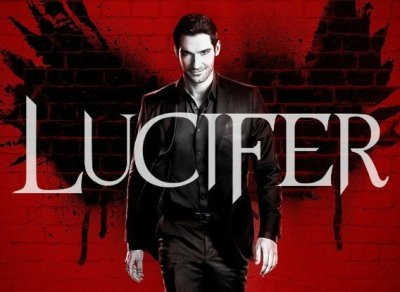
The Netflix ratings winner, “Lucifer,” portrays the devil as a hardworking crime fighter seeking justice, while having a good time. He is on earth as furlough from dealing with the “really bad” people in hell.
However, while on earth, driving sports cars and drinking scotch at his club, he finds the time to solve crimes and bring “perps” to justice. He practically sounds like a community service warrior!
So, what does a Christian do with a show like Lucifer? Is it just entertaining fiction, like a Marvel series? Or is it an Orwellian new-speak rebranding the one that comes to “kill and destroy” (John chapter 10 verse 10).
It mirrors the fascination with 17th Century poem, Paradise Lost by John Milton. This epic follows the fictitious story of what Lucifer was doing after he was cast out of heaven. The topic and poetic style have generated art, cultural discussion, and theological debate about Satan.
Like the Netflix TV series, Lucifer is cast in Milton’s poem as a powerful charismatic figure. However, in this new series the Prince of Darkness takes on the Hollywood persona living it up in the city of angels (Los Angeles).
Some people don’t believe the devil really exists so, like Santa, they ignore away any concerns. Others point to the strong Biblical evidence for the reality of evil and witness to a deceiver’s presence.
The Bible is clear Lucifer is a liar and thief. Revelation chapter 12 has a host of descriptions of him, all which are opposed to Jesus. However, the question remains, “what to do with the series?” Some different options have emerged: Firstly, ignore it as it is just entertainment. Secondly, censor and warn people not to watch. Thirdly, educate around it.
Ignore
Some have argued that the show is built to make money as entertainment. Hence the major themes of this series are about drama and glamour rather than theology. As a result, some people say, “ignore it,” it is part of the distraction of TV entertainment.
However, a person that knows much about the power of TV, philosopher Neil Postman, points out that subversive power of television to dull the reality and make our mind as a sluggard. He explains “ignoring it” and seeing everything as entertainment is to let people “love their oppression, to adore the technologies that undo their capacities to think.” And deeper thought is at the heart of this issue here.
Censor
Warning people about thinking Lucifer is a modern-day Marvel figure has merit. The Bible does explain Lucifer “masquerades as an angel of light” however he is never portrayed as having any genuine desire for relationships and justice.
He is described as an accuser turning people away from Jesus. This is not the “cool guy” seen in the Netflix series seeking justice. However, banning Christians from watching it is ironically Orwellian in its methodology: wanting to stop the promotion of an idea by banning it.
So we have a juxtaposition: ignoring it loses an opportunity for deeper reflection on the topic. Censoring it covers over the topic for any reflection.
Postman brilliantly contrasts the Orwell and Huxley predictions of a controlling State. Orwell saw a Big Brother state censoring our moves. Huxley saw a flooding of egotistical pleasures that meant we do not have to think about our moves.
Postman concludes, “What Huxley teaches is that in the age of advanced technology, spiritual devastation is more likely to come from an enemy with a smiling face than from one whose countenance exudes suspicion and hate. In the Huxleyan prophecy, Big Brother does not watch us, by his choice. We watch him, by ours.” When we are distracted by entertainment or when deeper theological discussions are censored then there is a problem.
Educate
The third option that this series provides is to be used as a vehicle to promote the gospel as the power to bring life in its fullness. In educating you are appealing to people’s ability to think more deeply on the Biblical and cultural complexity of Satan.
The Biblical view gets people engaging with the Bible’s storyline and encouraging them to use their wisdom and skill to discern reality over Hollywood. The cultural view sees a search for justice and answers for a fallen world. Both views lead to Jesus who brings life, rather than Satan who comes to kill and destroy.
The best answer comes from Revelation chapter 12 which explains the saints defeat him (Lucifer) by “the blood of the Lamb and the word of their testimony.” Explaining the gospel of Jesus’ victory (1 Corinthians Chapter 15, verses 55-58) is always the best response.

Jeremy Dover is a former sports scientist and Pastor
Jeremy Dover's previous articles may be viewed at https://www.pressserviceinternational.org/jeremy-dover1.html
And https://www.pressserviceinternational.org/jeremy-dover.html